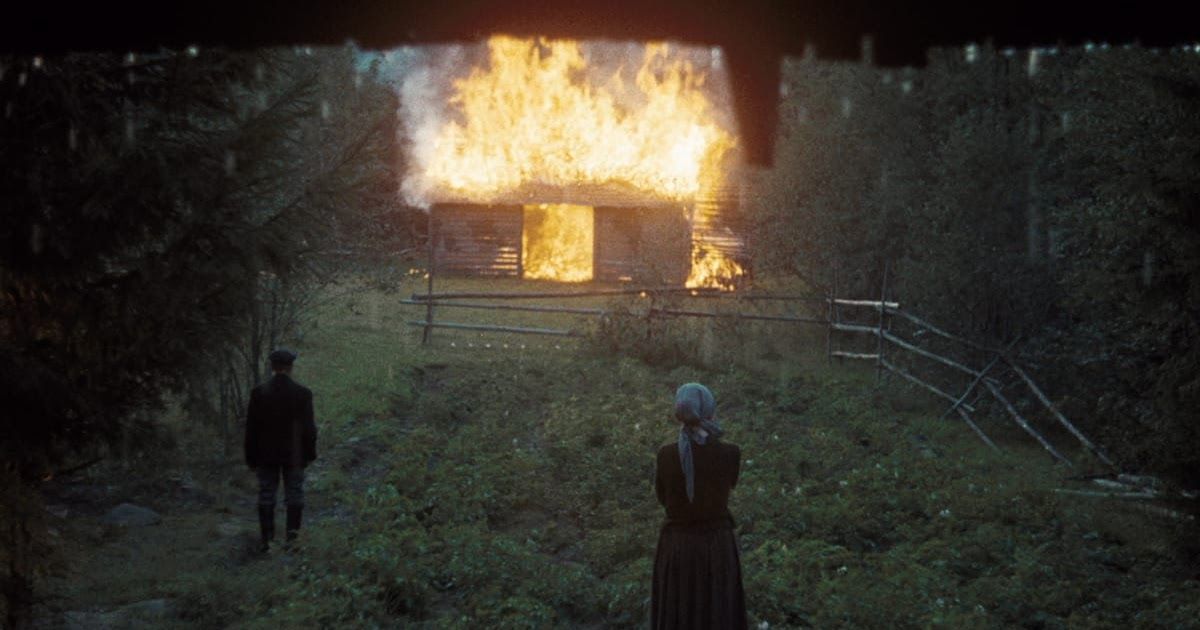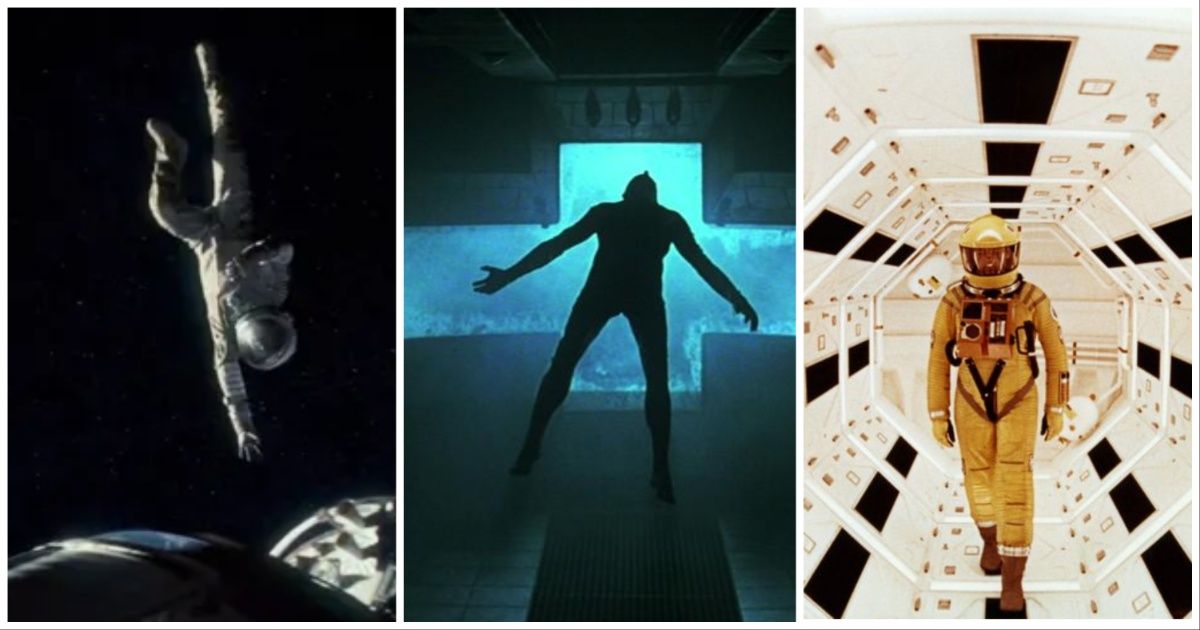summary
- Tarkovsky
Solaris
It is a pioneering science fiction film that delves into human emotions and moral dilemmas, and departs from the stereotypes of the genre. - Despite receiving critical acclaim and appreciation, Tarkovsky considered
Solaris
Technical failure due to inability to break free from the constraints of traditional science fiction. - The film transcends time, focuses on inner turmoil and relationships, and emphasizes human values over the technology and special effects common to the genre.
In 1968, 2001: Space Odyssey It was shown in cinemas. The film was directed by American director Stanley Kubrick, and the film was not only an epic Sci-fi It was a journey full of futuristic details, but it also dominated the box office, winning several awards, including Best Story, Best Cinematography, Best Original Score, etc. But another name in the film industry (on the other side of the world) quickly turned this beloved film upside down, stating that it was cold, sterile, and focused too much on a fantasy kind of future.
That was the man Andrei Tarkovskya Soviet film director who wanted to approach the science fiction genre differently by using emotional depth as a driving force to accomplish the story. Four years later 2001Tarkovsky has finished and released his own film, which beautifully captures this supposed lost essence— SolarisThis nearly three-hour film is often hailed as one of the best sci-fi films ever made, but surprisingly a major criticism seems to have come from Solaris“Success. Tarkovsky himself went so far as to call his film an artistic failure. But why?
Personal Crises and Sci-Fi Merge in Solaris
Solaris (1972)
- release date
- September 26, 1972
- exit
- Andrei Tarkovsky
- the show length
- 2 hours and 47 minutes
When it comes down to it, The film adaptation of Stanislav Lem's 1961 novel of the same name seems to have impressed all science fiction fans.After some persuasion, a lone psychologist named Chris Kelvin (played by Soviet-Lithuanian actor Donatas Panionis) goes to an isolated space station orbiting the planet Solaris to investigate what happened to the three-man skeleton crew, which initially numbered over 50 people. Suddenly, the remaining trio experiences strange, almost hallucinatory crises. As the plot progresses, it is revealed that the crises are not imaginary but real beings – called “Visitors” – who somehow come to life from people's consciousness.

Related
The best films of Andrei Tarkovsky, ranked by category
Soviet director Andrei Tarkovsky left a profound cultural and cinematic legacy. Here are his best films, ranked by genre.
This strange phenomenon was triggered by all the scientists on board the plane when they tried to analyze the cosmic ocean below them using large areas of X-rays. All of Tarkovsky's trademarks in filmmaking are present in Solaris – A constantly flowing discussion about human values (and which ones are most important), a slow, ever-escalating sci-fi story that asks more than it tells, and timely panoramic shots that complement the current sequence. Solaris Things get even heavier when Chris is struck down with the same disease that afflicts everyone else – Harry, his dead wife, suddenly reappears, raising questions about Chris's moral views on what to do with the planet. But the strange thing is that she dies and then comes back several times.
Tarkovsky doesn't like Solaris, but why?
In the midst of this story set in another world where humans are trapped in their deepest secrets that come to life, Harry and Chris help get the idea across. Solaris houseChris' guilt for not being there when the real Harry needed support and this version of Harry having emotional breakdowns because of her past helped push this science fiction story into more realistic territory. Their chemistry was off the charts. Natalia Bondarchuk (actress who played Harry) I fell in love with Banionis while filming. SolarisIt is a timeless romantic film, a timeless science fiction film – one that real scientists would praise – and has received countless accolades. But why does Tarkovsky hate his creation? Because, according to him, it has not been freed from the constraints of the science fiction genre.
For example, I find the movie
Solaris
Not very well because I couldn't escape that kind of, fictional detail.

Related
10 Movies That Embody the Space Horror Genre
There's probably nothing more terrifying than the vast vacuum of space. Here are 10 movies that capture the underutilized space horror genre.
In the documentary A journey through time (which follows Tarkovsky as he begins production. NotalgiaThe director, who starred in this film (his second most recent), makes this point with another specific statement: he is not committed to fictional storytelling, because it is a means of escaping real life. “The hidden inner human problems, the moral problems, always interest me much more than any questions of technology,” he says. By making this connection, he draws a parallel between filmmaking of all kinds and commercial filmmaking, which he hates so much.
Solaris is a film that transcends time.
While anyone watching Solaris It's easy to see that he's managed to break out of his usual sci-fi rut, Tarkovsky feels as if the technical dialogue and special effects found in Solaris Keep it within the boundaries of the assumed genre.There wasn't enough work to balance those specific presentations. He's built a feature under his belt that he believes accomplishes that feat sufficiently, and points out that stalker (Another science fiction film that draws on human values and emotions.) Most of us can only bear the heavy burden that a filmmaker bears when he decides that one of his productions that has been shown to the public is not up to the mark.
in
stalker
However, the movie that was produced was based on a science fiction story. I think I was able to overcome this genre and get rid of all the “science fiction” tags completely. And that gives me great pleasure.
But as you can see, that doesn't mean the same title is a failure. Solaris This series takes what you think you know about science fiction, upends the usual tools that make up the genre (mostly), and makes humans (and all their emotions and morals) the central setting of the show—not an evil supercomputer or a fearful tyranny in black and red robes. Especially with SolarisTarkovsky tried to make it clear that one's interpretation of the characters and one's relationship with them was more important than anything else that could be presented within the framework of science fiction. If only he could see that this cinematic position is respected by modern audiences even today. Solaris Available to stream on YouTube (free) and Max.



